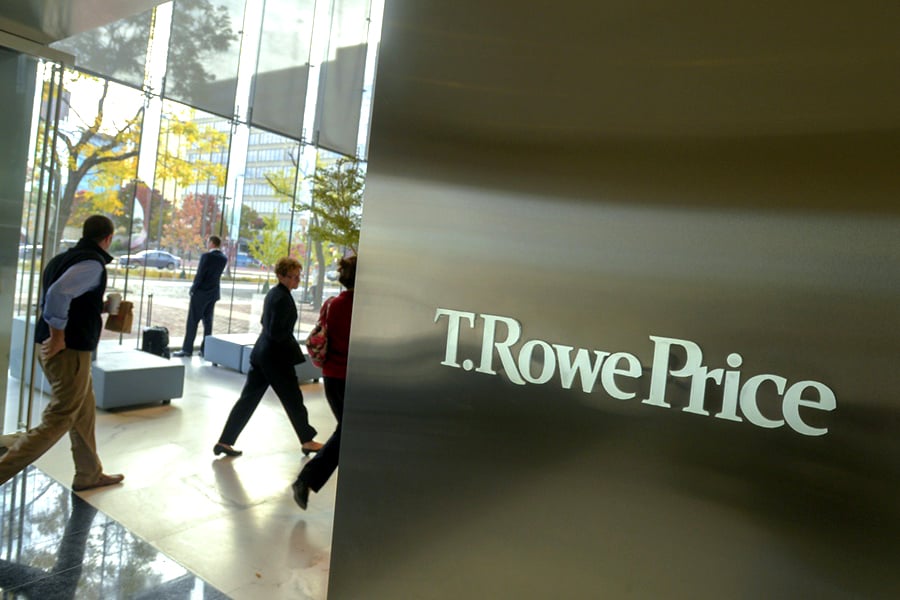

T. Rowe Price Group Inc. made a rare acquisition in its quest for growth, embracing credit in a sign that the firm needs more than its core mutual fund business to keep expanding.
The company’s $4.2 billion purchase of Oak Hill Advisors, announced Thursday, marks T. Rowe’s first foray into private markets. But it came as the fund giant reported $6.4 billion of net outflows for the third quarter.
Even in an industry where big tie-ups are increasingly common, T. Rowe cut few deals during its 84-year history, making its decision to buy one of the biggest players in alternative credit even more consequential. The firm struck its last major deal more than two decades ago, when it took full ownership of Rowe Price-Fleming International, a former joint venture.
With more than $1.6 trillion of assets, Baltimore-based T. Rowe is a heavyweight in retirement savings through its actively managed mutual funds. But the money management business has been transformed as investors turned to index-tracking products such as exchange-traded funds.
While T. Rowe has avoided the index business, where fees are under pressure and just a few giant firms rule the field, it’s adding more actively managed ETFs — and now Oak Hill, which oversaw $53 billion as of July 31.
The transaction aligns with the active investment ethos of Chief Executive Bill Stromberg and his soon-to-be successor, Rob Sharps.
“We have a vision to be the premier active investment manager in the world,” Sharps, T. Rowe’s president, said in an interview Thursday. “Alternatives is an asset class that is growing rapidly” and there’s increasing interest in it from investors, he said. Sharps will become CEO Jan. 1.
The private credit market has doubled in size over the past few years to about $1 trillion from around $500 million in 2015, according to data from research firm Preqin, as banks have stepped back from offering traditional credit to small and midsize firms. Now direct lenders are cutting into a business dominated by investment banks — leveraged loans — as they grow.
Investors, meanwhile, are funneling money to direct lenders in search of higher returns after private credit performed relatively well during the pandemic-induced downturn. Default rates never rose above 2% in 2020, and were lower than those for high-yield bond and syndicated leveraged-loan markets, according to White & Case.
Separately, T. Rowe reported third-quarter results, with adjusted earnings per share of $3.27, missing the $3.30 average estimate of analysts surveyed by Bloomberg. Net revenue totaled $1.95 billion, short of the $1.98 billion predicted by Wall Street.
Shares of T. Rowe rose 5.6% to $215.25 at 11:49 a.m. in New York. The stock had gained 35% this year through Wednesday.

Some in the industry say that more UBS financial advisors this year will be heading for the exits.

The Wall Street giant has blasted data middlemen as digital freeloaders, but tech firms and consumer advocates are pushing back.

Research reveals a 4% year-on-year increase in expenses that one in five Americans, including one-quarter of Gen Xers, say they have not planned for.

Raymond James also lured another ex-Edward Jones advisor in South Carolina, while LPL welcomed a mother-and-son team from Edward Jones and Thrivent.

MyVest and Vestmark have also unveiled strategic partnerships aimed at helping advisors and RIAs bring personalization to more clients.
Orion's Tom Wilson on delivering coordinated, high-touch service in a world where returns alone no longer set you apart.
Barely a decade old, registered index-linked annuities have quickly surged in popularity, thanks to their unique blend of protection and growth potential—an appealing option for investors looking to chart a steadier course through today's choppy market waters, says Myles Lambert, Brighthouse Financial.
